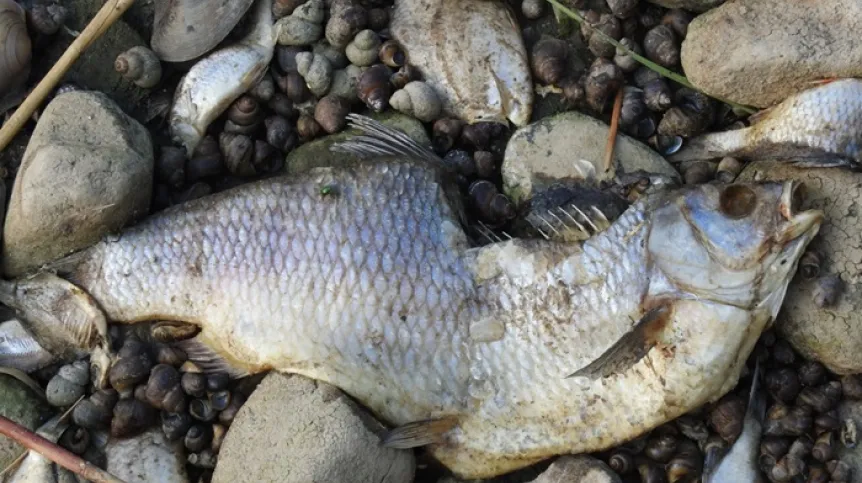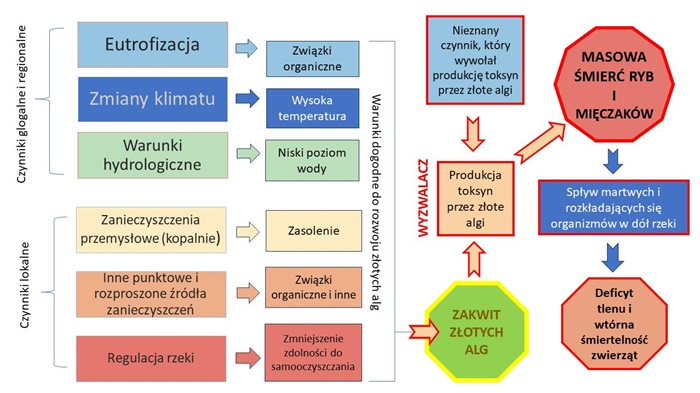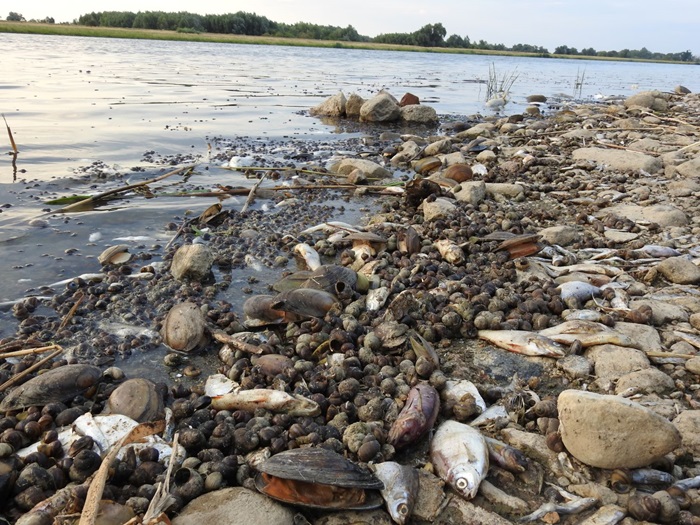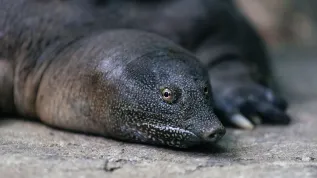
Nearly 90 percent of mussels and aquatic snails and 3.3 million fish have died in the lower Oder. Across the entire affected stretch of the river, the estimated fish mortality was 1,650 tons, a 60 percent decline from pre-disaster levels. Researchers presented the summary of the effects of last year's Oder environmental disaster in the journal Science of the Total Environment.
Two scientists inventoried the losses in fish and mollusc populations in the lower Oder during last year's disaster: Dr Agnieszka Szlauer-Łukaszewska, a professor at the University of Silesia, from the Institute of Marine and Environmental Sciences of the University of Szczecin and Dr. Dominik Marchowski from the Museum and Institute of Zoology of the Polish Academy of Sciences. They collaborated with Łukasz Ławicki from Eco-Expert Szczecin and ecologists from the Save the Rivers Coalition: Jacek Engel (Greenmind Foundation), Ewa Drewniak, (Naturalist Club) and Karol Ciężak (The Society for Earth).

The authors' research shows that during the Oder disaster, 65 million (88 percent) mussels from the Elyscidae family, almost 150 million (85 percent) aquatic snails, predominantlyViviparus viviparus, and 3.3 million fish (1,025 tons) died.
Commenting on the 95 percent mortality rate of the population of the native mussel species Anodonta anatina, the authors warn about the risk of filling the niche left by the native species and further spread of the invasive Chinese mussel Sinanodonta woodiana in the Oder, the population of which decreased by only 15 percent during the disaster.

In the press release, the authors of the analyses also point out that an ecological disaster with such a scale of mortality of aquatic organisms has not been documented before in this part of Europe. They recommend different measures than the recommendations in the Oder Special Act pushed by the Polish government regarding the revitalization of the Oder ecosystem: suspending the construction or reconstruction of regulation structures, improving monitoring, starting renaturalisation and implementing solutions aimed at minimising the runoff of biogenic substances and discharges of saline water from industry and mining plants.
PAP - Science in Poland
zan/ agt/ kap/
tr. RL













